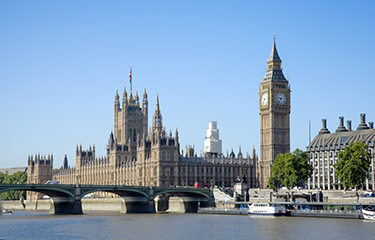The United Kingdom’s Fisheries Bill has received Royal Assent after 10 months in Parliament, thereby making it the Fisheries Act, the country’s government has confirmed.
Announcing that the Fisheries Act 2020 had passed into law – representing the United Kingdom’s first major domestic fisheries legislation in nearly 40 years – the government said it would now have control over who fishes in its waters through a new foreign vessel licensing regime, and that the current automatic rights for European Union vessels to fish in U.K. waters have ended.
Moving forward, the U.K. government and devolved administrations will now develop new fisheries management plans aimed at benefiting the fishing industry and the marine environment.
U.K. Environment Secretary George Eustice called the delivery of the new act “a huge moment” for the U.K. fishing industry.
“The Fisheries Act makes clear our intention to continue to operate on the world stage as a leading, responsible, independent coastal state. We will protect our precious marine environment, whilst ensuring a fairer share of fishing opportunities for U.K. fishermen,” he said. “By swiftly responding to the latest scientific advice and needs of our fishing industries we will secure a thriving future for our coastal communities.”
U.K. Fisheries Minister Victoria Prentis added that it marked “another crucial milestone” as the country embarks on a new journey as an independent coastal state.
“This means that we can tailor our policies to the needs of the U.K. industry – making the most of the riches of our waters, in harmony with the needs of the marine environment,” she said.
According to the government, the Fisheries Act will ensure:
- The U.K. government and the devolved administrations will publish a legally binding Joint Fisheries Statement and develop to coordinate fisheries management plans and achieve sustainability goals.
- E.U. vessels’ automatic access right to fish in U.K. waters is removed.
- Foreign boats will be required a license to fish in U.K. waters and will have to follow the United Kingdom’s rules.
- Fisheries are managed in a sustainable way – balancing social, economic, and social benefits while preventing the overexploitation of fish stocks.
- The U.K. fisheries administrations will seek to ensure increased benefits from fish caught by U.K. boats.
- Sensitive marine species, such as dolphins, are protected and the bycatch of unwanted fish reduced.
- U.K. boats can continue to access any part of U.K. waters, as they do now regardless, whether they are registered in England, Scotland, Wales, or Northern Ireland.
- U.K. administrations can set up new domestic grant schemes, providing funding in new areas and tailored to the needs of their sectors.
The act also recognizes that many fisheries resources are “shared stocks,” which will require negotiations with other countries.
While Scottish Fisheries Secretary Fergus Ewing acknowledged that the act will provide a necessary framework to manage fisheries from 1 January 2021, he maintained that the best future for Scotland is as an independent nation in the E.U.
“Nothing in this legislation can compensate for the loss of our biggest seafood markets in the E.U. and the wider damage that it will cause to our coastal communities,” Ewing said. “With just over five weeks until the end of the transition period, the U.K. government must urgently clarify how it will provide us with the multi-year funding which was available from the E.U. and support the new powers.”
Recently, and alongside the act, the United Kingdom has secured new bilateral fisheries arrangements, including agreements with Norway and the Faroe Islands, and memoranda of understanding with Greenland and Iceland.
Photo courtesy of Daniela Migliorisi/Shutterstock







